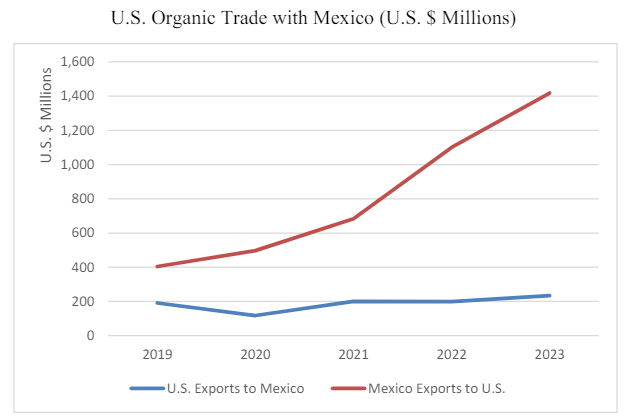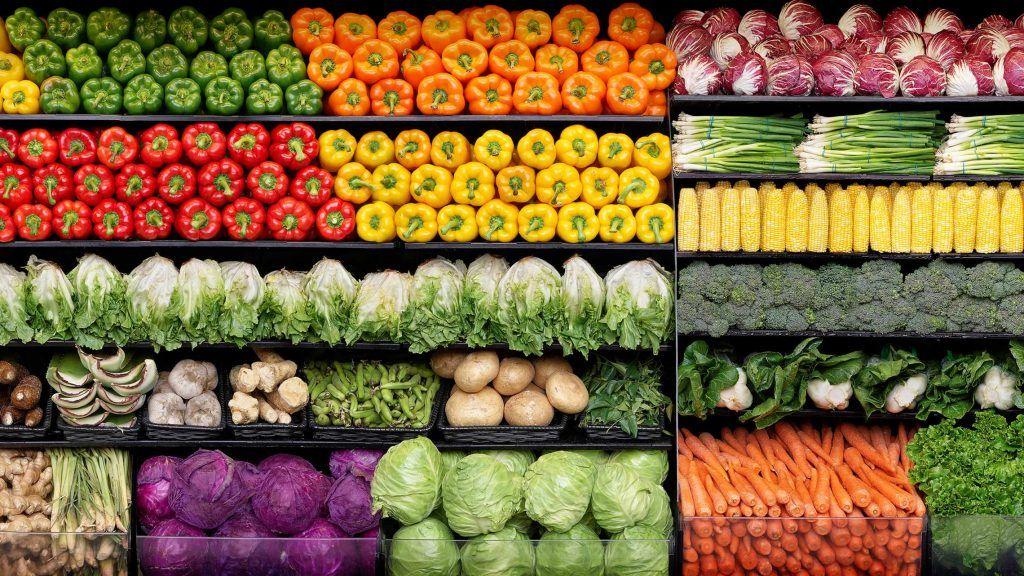Trade in organic products between Mexico and the United States reached US$1.6 billion in 2023.
Since 2019, in this bilateral trade, Mexican exports grew uninterruptedly, while U.S. exports remained stable.

The following are some of the characteristics of organic produce crops:
- They do not use pesticides, synthetic or chemical fertilizers or genetically modified organisms (GMOs).
- They use practices that care for soil, biodiversity and water.
- They use natural methods such as composting, crop rotation and biological pest control.
- Minimize environmental pollution.
Trade in organic products
According to data from the U.S. Department of Agriculture (USDA), Mexican exports of organic products to the U.S. market were $400 million in 2019, double the corresponding U.S. exports to the Mexican market.
These U.S. exports slightly exceeded $200 million in 2023.
Mexico’s National Organic Operation Control Board (NOOCB) classifies certified Mexican producers based on their production methods.
These production classifications include fruit and vegetable production, animal production, harvesting or gathering of products from their natural habitats, and food processing.
According to the USDA, in 2023, Mexico’s certified organic acreage totaled 571,608 hectares (ha), 60% for harvesting or gathering and 40% for crop production.
Between 2022 and 2023, Mexico’s organic production area increased for specific fruits such as oranges (from 16,668 ha to 20,943 ha), mangoes (from 13,598 ha to 16,506 ha), and lemons (from 5,068 ha to 6,266 ha).
The planted area of other organic products decreased during the same period.
Tariff classification
For trade in organic products, the Harmonized System (HS) covers a limited number of organic products.
Existing HS codes include fresh organic produce, milk, fruits and vegetables, but not processed products or organic nuts.
U.S. exports to Mexico of products that have HS organic codes have increased in recent years, especially berries and avocados, and trade in organic products between the U.S. and Mexico is significant and growing.
While the HS system covers a limited number of organic products, the actual value of organic trade between the two countries is undoubtedly much greater.

